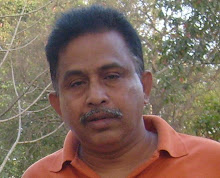The interview and the data generated:
In the discussion, attempts will be made to clarify the results given in the previous chapter in tabular forms for as a result of the thorough investigation of the health care behavior of the rural people under Rajshahi Division and to relate them with the social factors which influenced their development.
Environment of the interview:
For the planned in-depth interview of the respondents i.e. the rural population for qualitative data, data collection instrument had been designed carefully as a qualitative questionnaire having mostly unstructured questions with general outlines of the topics. Unprompted clarifications were obtained by skillful follow-up questions. From the very beginning, the respondents were kept carefully unprovoked and no leading questions were put. Biasness was carefully avoided. They were totally free to discuss their topics in their own style. Interviewers just tried them to keep the respondents in the topic tracts and not to deviate much except when necessary.
In most cases, the respondents showed considerable interest to discuss the issues, which they thought and perceived as their own stories and matters of their everyday life. It was a success for the researcher that the discussions could be placed in the huts, courtyards or under the trees of the rural villages in the Rajshahi Division where all the elements regarding the myths with their associations with livelihoods of the populations were seemed to prevail. Abundance of trees makes the rural Bangladeshi villages as intense dark shadowed places which become darker with the dusk and become darkest at the nights. In Bangladeshi rural areas as it is in the Rajshahi Division, the natural bushes and the shadows, constituted by bunch of bamboo and varieties of trees, create and maintains a mysterious environment as mentioned earlier in general capable of exerting influences on the human lives, their culture, their traditional beliefs and on their practices in different issues over the centuries. The morale of the research was depended on the mentioned range of social factors usually influence their mind through contexts of their traditional beliefs, culture and their practices with a behavioral study like health care behavior. So, while conducting the in-depth interviews, people were free to express feelings, their imaginations, and perceptions, sometimes those were beyond reality, occasionally seemed as mythical! In their expressed traditional beliefs, there were delusions, super values, creativities etc. Underlying psychology of their health care behavior was reflected through their responses, which had been originated and modified by the social factors forming the basis of the mentioned psychology or behavior. They were not disturbed for the interviews in their busy times for livelihood; rather the interview times were taken from them with their own choice. More over, when the female head of the household (what was our priorities for different reasons) were not allowed to talk with the interviewers, we talked with the male head as per their choices. The researcher took proper care while asking “sensitive questions” in the sexual or other “forbidden” contexts.

No comments:
Post a Comment